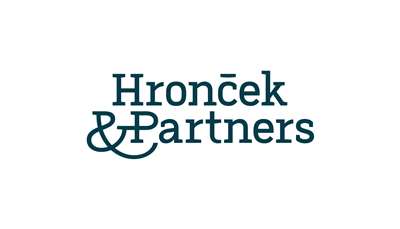You may have noticed or been informed that several entities operating in the field of social media or other communication platforms through which they broadcast or otherwise communicate (e.g., YouTube, Facebook Watch, Instagram, OnlyFans, TikTok, etc.) have incurred numerous obligations arising from new legislation in this area, which we will present to you in more detail. The purpose of this article is to provide brief information on the changes adopted concerning these entities (authorization to provide audiovisual media services on demand - AVMS) and on the basic obligations that have arisen for them, with an emphasis on the obligation to register in the register of public sector partners (RPVS).

On June 22, 2022, the National Council of the Slovak Republic approved a new legal regulation - Act No. 264/2022 Coll. on media services and amending certain acts (the Media Services Act) (hereinafter also referred to as the “Media Services Act”), with effect from August 1, 2022 (some provisions have different effective dates). The Media Services Act also repealed Act No. 308/2000 Coll. on Broadcasting and Retransmission and on the Amendment of Act No. 195/2000 Coll. on Telecommunications and Act No. 220/2007 Coll. on digital broadcasting of program services and the provision of other content services via digital transmission and amending certain acts (the Digital Broadcasting Act).
The currently valid Media Services Act, in Section 19(3), stipulates that any distribution of a program service via the Internet is considered broadcasting via the Internet, as it states that the broadcasting of a program service via the Internet is the distribution of a program service exclusively via the Internet (webcasting).
Section 26 of the Act defines that audiovisual media service on demand (AVMS) is a service
- which is primarily of an economic nature,
- the main purpose or the main purpose of a separable part of which is to allow viewing of programs at a time chosen by the user,
- which is provided at the individual request of users on the basis of a program catalog compiled by the provider of the audiovisual media service on demand,
- for which the provider of the audiovisual media service on demand is editorially responsible,
- which is provided via a network, and
- which is provided for the purpose of informing, entertaining or educating the general public
and that audiovisual media services on demand do not include the provision of sound recordings on demand (e.g. podcasts, etc.) and
in § 27, it defines that an on-demand audiovisual media service provider is a person who is editorially responsible for the selection of the content of an on-demand audiovisual media service and determines the manner in which it is organized.
AVMS are therefore
- services where users themselves choose which video or program they want to watch on the internet or in an app, e.g. Netflix, internet television archives or video sections of news portals
- channels on platforms such as YouTube, Facebook Watch, TikTok, Instagram or OnlyFans, provided that they have been established or are provided for profit and also meet the other conditions set out in Section 26 of the Media Services Act
The basic obligations of an AVMS provider within the meaning of Section 28 of the Media Services Act include:
- the obligation to ensure easy, direct and permanent access for the public to the following information in particular - the name, business name or surname and first name of the provider of the on-demand audiovisual media service, the address of the registered office, place of business or residence of the provider of the on-demand audiovisual media service the telephone number, e-mail address or website of the provider of on-demand audiovisual media services, the ownership structure of the provider of on-demand audiovisual media services and the ultimate beneficiary of the provider of on-demand audiovisual media services, information that the provider of on-demand audiovisual media services is subject to the jurisdiction of the Slovak Republic and the competence of the regulator and other supervisory authorities, information on whether the provider of on-demand audiovisual media services is subject to any self-regulatory mechanism and the name of the self-regulatory body enforcing that mechanism, the authorization number for the provision of on-demand audiovisual media services assigned by the regulator – this obligation does not apply to providers of on-demand audiovisual media services in relation to which information is published in the register,
- the obligation to provide cinematographic works only at times and under conditions agreed with the holders of the rights to these works,
- the obligation to ensure that programs and other components of audiovisual media services on demand provided in the context of an election campaign comply with specific regulations,
- the obligation to ensure that important and urgent announcements, calls or decisions of state authorities in the urgent public interest, to the extent specified in specific regulations, or civil protection information which are made available through an on-demand audiovisual media service, are accompanied by interpretation into Slovak sign language and, at the same time, subtitles for persons with hearing impairments or simultaneous transcription of the spoken word.
- the obligation to keep separate statistics on the audiovisual media service on demand provided, including an assessment of the proportion of European works, including the manner in which they are highlighted, and the proportion of programs with multimodal access.
- the obligation to provide the regulator with specific statistics on the audiovisual media service provided on demand in accordance with paragraph 4 for each calendar month within 15 days of the date of receipt of the regulator's request for such statistics
- the obligation to notify the regulator of the current number of end users of audiovisual media services on demand in summary form once a year by January 31, based on the status as of January 1 of the given calendar year.
The Act further imposes on AVMS providers or entities that only intend to provide AVMS either an authorization requirement or a notification requirement, according to the following criteria:
- if the entity is a legal person and provides AVMS via its own website or application, authorization to provide AVMS is required prior to the commencement of AVMS provision (the Media Services Council has 90 days to grant such authorization and a fee of €260 is payable).
- if the entity is a legal person and the AVMS is provided exclusively through a video-sharing platform, authorization to provide AVMS is required prior to the start of provision (the Media Services Council has 90 days to grant this authorization and a fee of €260 is payable)
- if the entity is a natural person and provides AVMS via its own website or app, authorization to provide AVMS is required before the start of provision (the Media Services Council has 90 days to grant this authorization and a fee of €260 is payable)
- if the entity is a natural person and provides AVMS exclusively through a video-sharing platform (e.g. YouTube, Facebook Watch, TikTok, Instagram, and others), it is required to notify the Media Services Council of this fact no later than on the day of commencement of the provision of AVMS. The submission of a notification of the provision of AVMS is not subject to any fee.
For the sake of completeness, we note that ordinary users of social networks who publish only exceptionally and occasionally, not for profit (publishing is of a private and leisure nature), are not subject to any obligation – neither to obtain authorization nor to fulfill the notification obligation under the Media Services Act, as these entities are not considered AVMS providers within the meaning of the Media Services Act.
Section 174 of the Act therefore stipulates that the authorization to provide an on-demand audiovisual media service arises upon authorization to provide such a service, whereby this provision does not apply to the provision of an on-demand audiovisual media service exclusively via a video-sharing platform, if it is provided by an on-demand audiovisual media service provider who is a natural person and is not a video-sharing platform provider - in this case, the on-demand audiovisual media service provider is required to notify the regulator of the information required by law no later than on the day on which the on-demand audiovisual media service begins.
The Act further stipulates in Section 175(1) that an on-demand audiovisual media service may be authorized if it is planned to be provided by
- a natural person who has permanent residence or long-term residence in the territory of the Slovak Republic, if they have full legal capacity, are of good character and are registered in the register of public sector partners, an on-demand audiovisual media service provider who is also a public service broadcaster,
- a provider of on-demand audiovisual media services who is also a public service broadcaster,
- a legal entity with its registered office in the Slovak Republic, provided that it has a clean criminal record and is registered in the register of public sector partners.
An application for AVMS authorisation must contain several requirements and attachments specified in Section 176 of the Media Services Act and must be submitted using the forms provided for this purpose.
It follows from the above that entities that may be authorized to provide an on-demand audiovisual media service that they plan to provide (or already provide) must, above all, fulfill the obligation to be registered in the register of public sector partners. Without fulfilling this obligation, it is not possible to apply for authorization (at the same time, they must have permanent residence or registered office in the Slovak Republic, legal capacity, and be of good character).
As stated by the Media Services Council on its website, the law allows the Media Services Council to impose financial and non-financial penalties for failure to comply with obligations. The aim is not to punish, but to educate and prevent, and therefore no activities that would lead to the sanctioning of the entities concerned will be initiated for the time being.
The law firm Hronček & Partners, s. r. o. is ready to provide you with comprehensive legal advice and services in connection with the notification obligation or the obligation to apply for authorization of audiovisual media services. At the same time, we can provide you with advice and services in the area of registration in the register of public sector partners.
